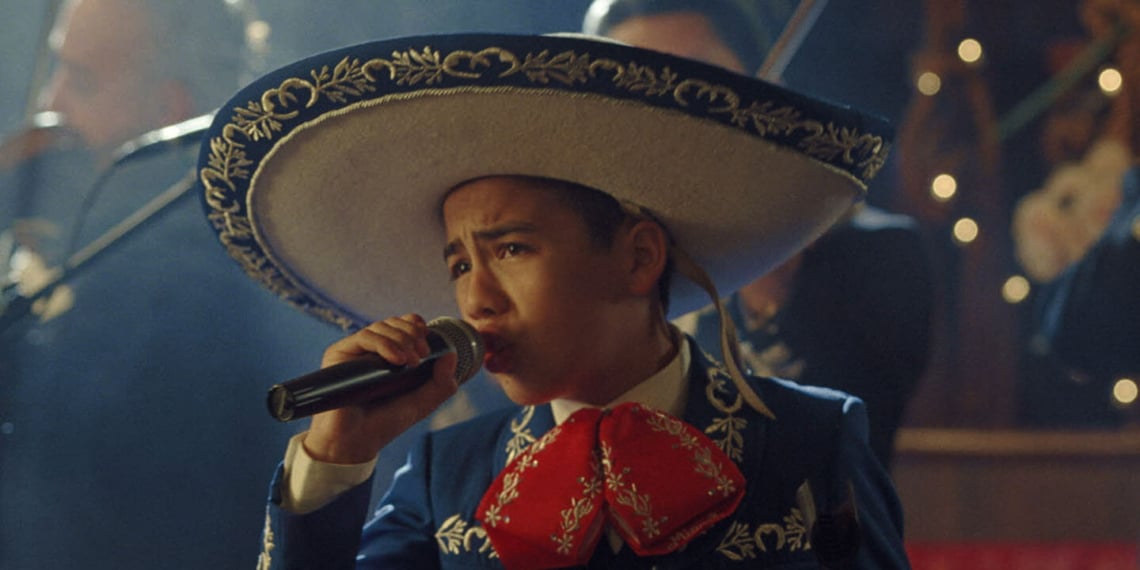James Valdez’s Canta Santiago is set in a restaurant and features a protagonist with a recently passed brother, so thoughts of The Bear are not totally out of place, but this is a different arena altogether. For one, the protagonist is a child. For two, he does not have room, not really, to fail. There are two audiences watching him.
Santiago (Jacob Estrada), a mariachi singer who cannot be more than 13, is the local artist of the week at a restaurant. The owner (David Saucedo) is kind, but no replacement for the brother Santiago has lost. Valdez carefully constructs for Santiago an environment of familiarity and affection that is at the same time utterly ineffectual. Don Pedro’s kindness is inert, like rainfall on raincoat-covered skin. The loss itself is wisely treated not as a dramatic twist, but as a fact to become acquainted with in a story where everyone else already knows it well.

Santiago’s grief is apparent from his first shot. He wears it on him, a literal, visible weight on his chest that wants to choke him. Estrada’s performance imbues Santiago with an understated readability from the get-go, whether it is his discomfort with his outfit or his hoarse voice, as if there has been crying. Unlike The Bear, the tension here inclines more towards dread. Santiago’s grief is treated with interiority but not the same intensity.
Editing and cinematography (both by Valdez) have remarkable moments, delivering, among others, an absorbing opening sequence. The film deploys a mobile camera with sparsity, reserved for some of its most crucial moments, amplifying their impact but perhaps leaving the rest a little stilted.

A member (Luis Bernal) of the performing band acts as something of a substitute brother, bringing Santiago into the fray for a fraught second act. An expectant audience awaits him, oblivious and easy to fear. In the meantime, he is given a structure of support: framing the musicians in the background, with their words and gestures of support, allows the character an essential, visible safety net without needing very many words to underline it. But when a truly effective voice of kindness emerges from among the sea of faces, the drama begins an upward climb—supported by a strong performance from Eduardo Togi—that is nonetheless tinged with sorrow. Valdez has built his film around this as his fine-drawn framework: kindness to prop up a boy into adulthood when the journey has been rendered especially, painfully lonely.
It is not ironic that Santiago, burdened by a loss bigger than him, shoulders the performance of a song that articulates emotions beyond his years. The artificial precocity of the latter is undercut by the unfeigned complexity of the former—a smart use of music. Canta Santiago embeds the development of its child protagonist through the final stages of grief into its climactic performance. Santiago reaches the finishing line of his arc: become his brother as the singer and, in an astute addition, the earner. The end is inscribed into the beginning. Santiago sings, he needs to.
Watch Canta Santiago Short Film Trailer
Canta Santiago: Grief, Amid the Demands of Showbiz and Wages
-
Direction
-
Cinematography
-
Screenplay
-
Editing
-
Music
















